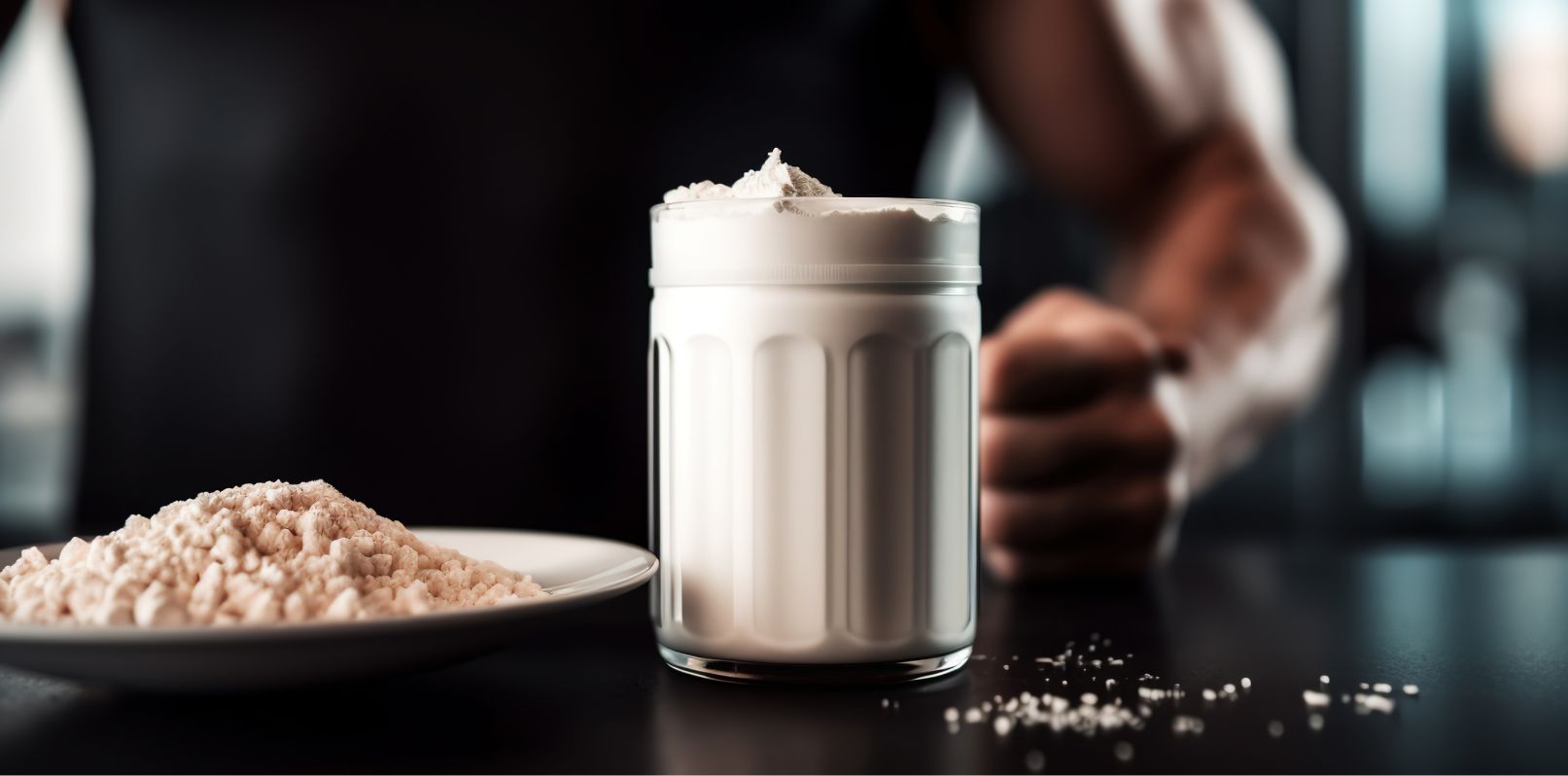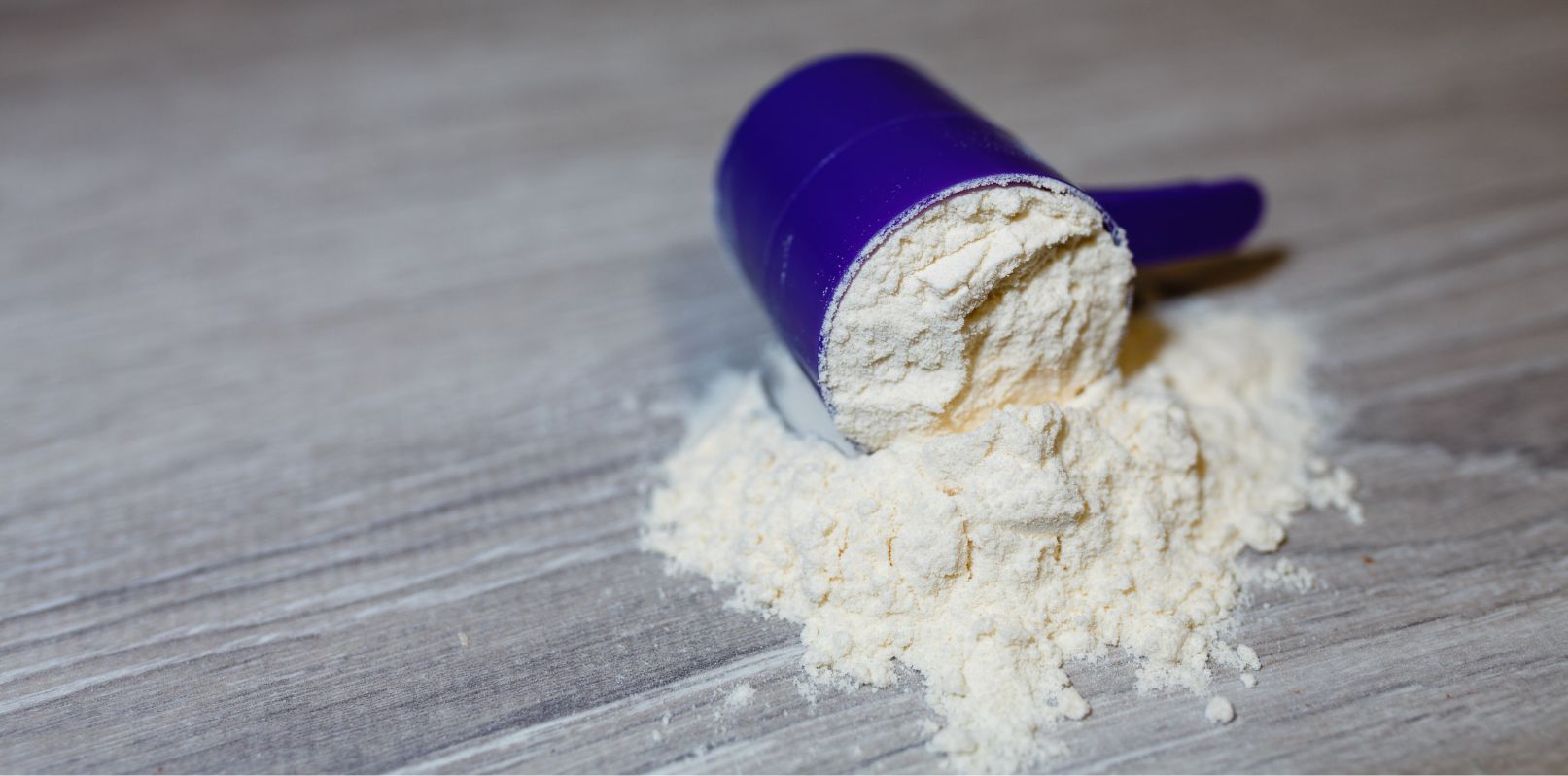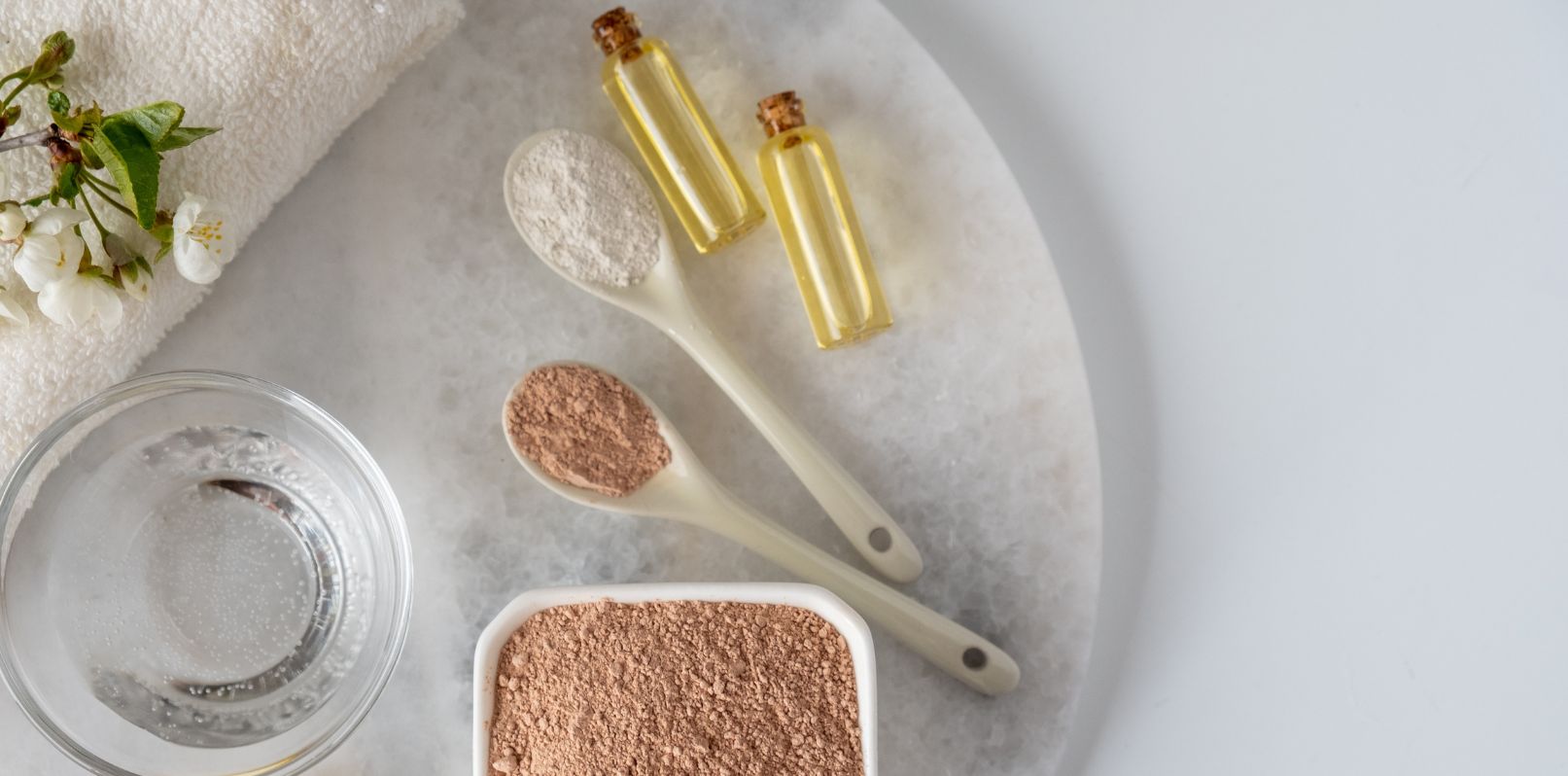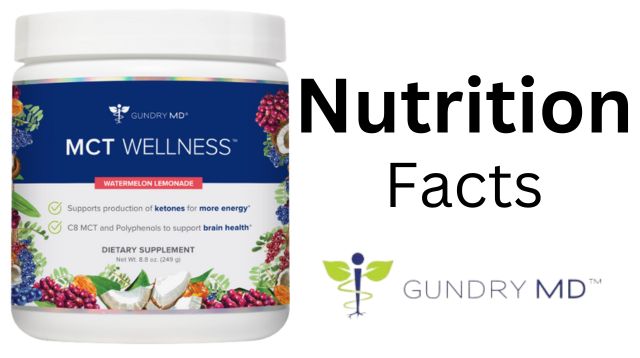Can You Add MCT Oil to Your Protein Shake? (and why you should)

MCT Oil: Why The Hype?
MCT oil is composed of MCTs (medium chain triglycerides), a type of saturated fat usually derived from coconut oil. These MCTs are famed for being quickly absorbed into the bloodstream.
MCT oil and coconut oil differ because MCT oil is a concentrated version of coconut oil. It contains 100% MCTs, while coconut oil contains only around 50% MCTs.1 MCT oil typically consists of a blend of either caprylic acid (C8) and capric acid (C10), or just C8 – the most potent compounds.2
But why is MCT all the rage right now?
Well, the popularity around MCT oil isn't without reason. This is because MCT oil, or MCT oil powder, may help support –
- Weight Management
- Energy and Focus
- Healthy Blood Sugar Levels already within a normal range
- And more3-9
Let’s explore these ideas further.

Potential Benefits Of Protein Shakes
A protein shake is a delicious and efficient way to give your body an extra surge of protein. Getting enough protein isn’t only for bodybuilders. Protein is essential for your cells, tissues, and organs to work properly. It can also help support a healthy metabolism, increase fullness, and help support muscle growth.10
The chief component of a protein shake is a protein powder of some kind. Protein powder sources are many and varied, but they can also be plant-based – think flaxseed or hemp protein.
You can enjoy drinking a protein shake in many ways: mixed with water or coconut milk, or blended into a smoothie with certain fruits and veggies.
And, popularity has also been growing for incorporating MCT oil powder into the mix, to make your protein shake even more potentially beneficial.
Four Reasons To Put MCT Oil In Protein Shakes
1. MCT Oil May Help Promote Ketone Production
MCTs are potent sources of fuel for your body, known to help enhance ketone production – a key component of successful weight management.11
Ketones are an alternative fuel for the body, made in the liver. Ketones burn fats and are usually formed when there’s not enough sugar or glucose for the body’s fuel needs.12
However, MCTs have specific properties which have led scientists to describe them as “ketogenic” even without carbohydrate restriction (which is what ketogenic diets are based on). This effect has predominantly been demonstrated by caprylic acid (C8).13
Whether you add it into your protein shake or just stir it into your morning coffee, MCT oil powder is an easy way to reap these potential benefits. Remember that moderation is key, and follow the MCT guidelines on your product.
2. MCT Oil May Help Support Weight Management
MCT oil and MCT powder could be effective for weight management due to MCTs' potential for fat-burning, energy expenditure, and even appetite suppression. Here’s what’s been observed:
- One particular study found that individuals consuming MCT oil experienced greater weight loss and saw greater reductions in body fat than those using olive oil.
- MCTs may be less frequently stored as fat compared with other oils because they travel so quickly through the body.
- MCT oil may help boost the number of calories burned after meals, a process known as post-meal thermogenesis.
- Increased ketone production may also make some people feel less hungry.14-17
3. MCTs May Help Support Healthy Blood Sugar Levels
One of the potential benefits that have been studied with MCT oil is that it may help promote healthy blood sugar levels. This could have a big impact on how people keep their blood sugar levels healthy and in check.18
One small study of 40 people with blood sugar issues showed that those who consumed MCT oil daily saw reductions in body weight, waist circumference, and blood sugar levels. This was compared to those taking oils long-chain triglycerides, or LCTs.19
4. MCTs May Help Support Energy, Focus, And Normal Brain Function
MCT oil may potentially be beneficial as an instant source of energy to the brain because it’s so easily absorbed into the bloodstream.20
If MCTs are converted into ketones, they essentially become “brain food,” potentially helping to support focus and concentration. Ketones have shown an ability to help support cognitive function and brain health in both older and younger adults.21-23
Finally, MCT oil has shown some rather exciting potential neuroprotective properties, which might help promote overall brain health.24

How To Add MCT Oil To A Protein Shake
Step 1: Figure out what kind of protein base you want to use.
Figuring out which protein shake could benefit from an added dash of medium-chain triglyceride (MCT) oil is simple and fun, and here's the skinny on how to do it:
- CONSIDER YOUR BASE: Do you generally gravitate towards a certain type of protein shake? Is it time to branch out and try something new? Would you prefer to avoid animal-based protein powder? A potent plant-based protein powder using hemp protein and/or flaxseeds may be just the thing.
- READ REVIEWS: Spend some reading reviews for a product you’re interested in. It's a potential goldmine of user experiences – people who have tried and tested and posted their reviews.
Step 2: Choose a brand of MCT oil or MCT oil powder.
Choosing a high-quality brand of MCT oil or MCT powder can significantly impact your results, making it a key decision.
When shopping for a suitable MCT, consider the following features:
- THE SOURCE: Your MCT oil should ideally be derived from coconuts.
- THE BLEND: Ensure that your brand contains only a blend of MCT caprylic acid (C8) and MCT capric acid (C10), or just C8 by itself (for extra purity).
Remember, choosing an MCT oil that aligns with your lifestyle needs is important, so you'll be more likely to use it. If you travel a lot, if you don't love the oily texture of oil in your shake, or if you just prefer less mess, an MCT powder would be your best bet. This is simply MCT oil that has been turned into a powder form. Some people also find that MCT oil powder is easier on the stomach and more comfortable.
Step 3: Add the correct amount of MCT oil or MCT powder to your protein shake.
- Follow the dosage guidelines on your MCT oil packaging.
- Start small to give your body time to adjust. Then, gradually increase your dosage over time.
Care for a recipe?
Here's a quick one for a post-workout protein shake.
Mix –
- One cup of your choice of milk (i.e. coconut, hemp, goat)
- ½ cup of ice cubes
- A scoop of sugar-free, plant-based protein powder
- The correct dosage of MCT oil or MCT powder
- 1 Tablespoon of unsweetened cocoa powder.
To mix these nutritional powerhouses together, add everything to a shaker or blender. A blender will help to create a smooth, creamy, and even texture, giving you a delicious-tasting high-protein, high-fat shake!

Final Thoughts
With these steps and tips, picking the right protein shake to blend with your MCT oil should be a cakewalk. Enjoy the power-packed journey!
As always, a good diet is built on variety, so even if you fall in love with MCT oil, you’ll still want to incorporate all those other super nutritious oils into your diet, too – like avocado oil and extra virgin olive oil.
Finally, remember to always consult your healthcare professional before adding any new supplement to your diet.
Sources
- https://www.ncbi.nlm.nih.gov/pmc/articles/PMC4882694/
- https://www.healthline.com/nutrition/mct-oil-vs-coconut-oil#mc-ts
- https://pubmed.ncbi.nlm.nih.gov/2021124/
- https://www.sciencedirect.com/science/article/abs/pii/S0031938420305667
- https://www.ncbi.nlm.nih.gov/pmc/articles/PMC4669977/
- https://pubmed.ncbi.nlm.nih.gov/1568535/
- https://alz-journals.onlinelibrary.wiley.com/doi/abs/10.1002/alz.055702
- https://pubmed.ncbi.nlm.nih.gov/33220329/
- https://www.frontiersin.org/articles/10.3389/fneur.2023.1123290/full
- https://www.hsph.harvard.edu/nutritionsource/what-should-you-eat/protein/
- https://www.ncbi.nlm.nih.gov/pmc/articles/PMC7175812/
- https://dtc.ucsf.edu/types-of-diabetes/type2/understanding-type-2-diabetes/how-the-body-processes-sugar/ketones/#:~:text=Ketones%20and%20ketoacids%20are%20alternative,and%20during%20dieting%20or%20fasting.
- https://www.ncbi.nlm.nih.gov/pmc/articles/PMC7175812/
- https://pubmed.ncbi.nlm.nih.gov/18326600/
- https://www.healthline.com/nutrition/mct-oil-101#:~:text=Since%20the%20MCT%20is%20digested,eventually%20be%20stored%20as%20fat.
- https://pubmed.ncbi.nlm.nih.gov/2021124/
- https://www.ncbi.nlm.nih.gov/pmc/articles/PMC5813183/#:~:text=Conclusions,hunger%2C%20and%20desire%20to%20eat.
- https://pubmed.ncbi.nlm.nih.gov/1568535/
- https://pubmed.ncbi.nlm.nih.gov/17570262/
- https://link.springer.com/article/10.1007/s13197-022-05499-w
- https://www.ncbi.nlm.nih.gov/pmc/articles/PMC4669977/
- https://alz-journals.onlinelibrary.wiley.com/doi/abs/10.1002/alz.055702
- https://pubmed.ncbi.nlm.nih.gov/33220329/
- https://www.frontiersin.org/articles/10.3389/fneur.2023.1123290/full
Related posts


